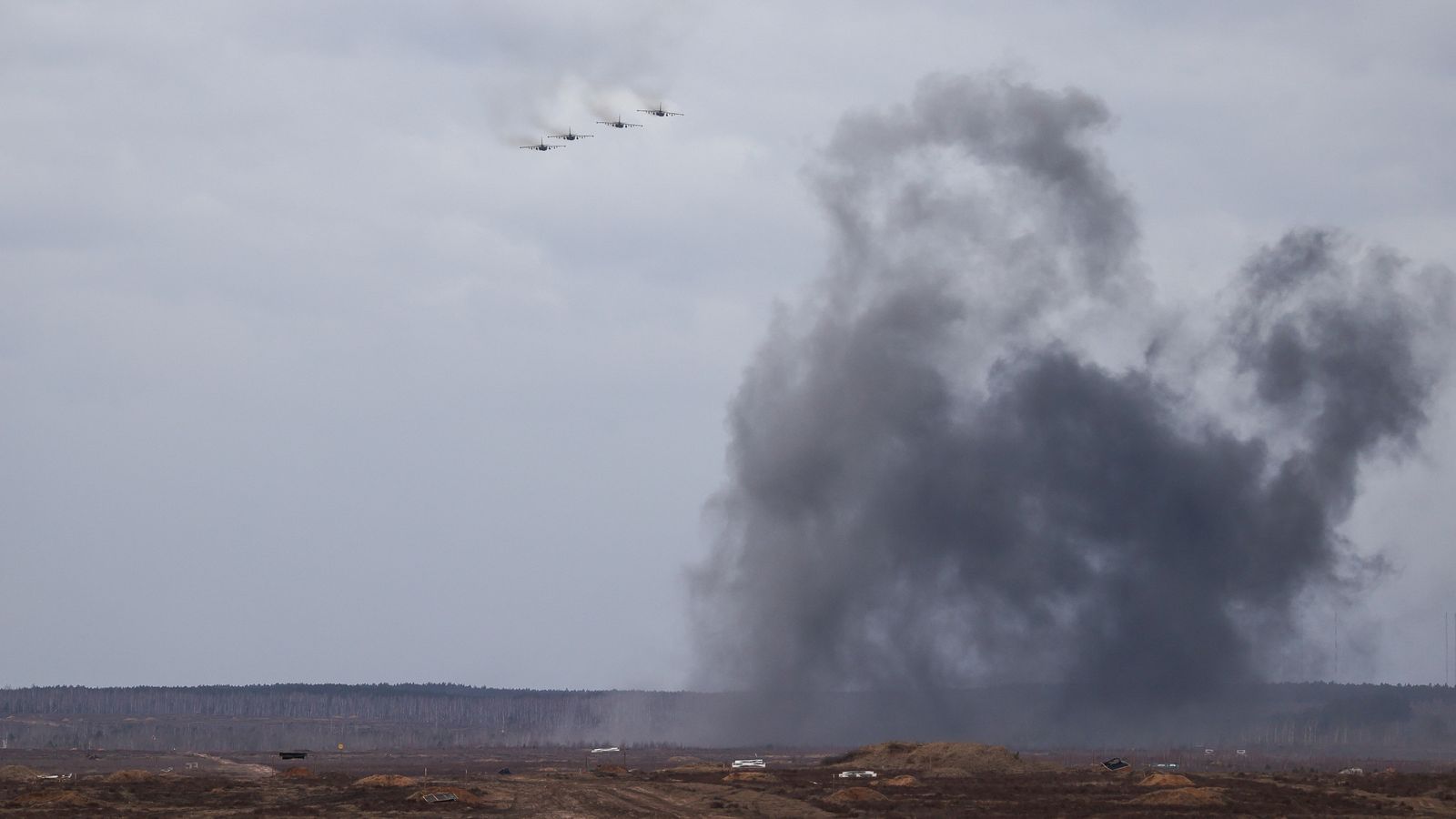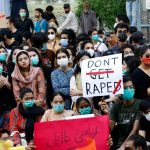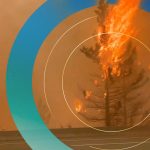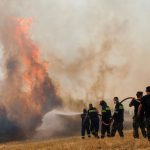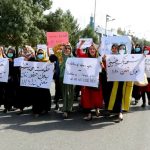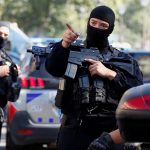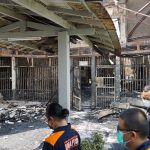Russia has extended military drills near Ukraine’s northern borders – sparking fears an invasion could be more likely.
The exercises, which brought a sizable contingent of Russian forces to Belarus, were originally set to end on Sunday.
The presence of the Russian troops raised concern that they could be used to sweep down on the Ukrainian capital, Kyiv, which is less than a three-hour drive away.
The Belarusian defence ministry said the decision was taken because of military activity near the borders of Russia and Belarus as well as the situation in eastern Ukraine’s Donbas region.
In a two hour phone call earlier, Russian President Vladimir Putin told his French counterpart Emmanuel Macron that his troops would leave Belarus after military exercises, according to a French official.
The two presidents agreed on the need for a diplomatic solution to the crisis in eastern Ukraine, both governments said.
A French presidential adviser said both leaders agreed that a meeting of the Organization for Security and Co-operation in Europe (OSCE), with representatives from Ukraine and Russia, should be held on Monday.
Downing Street parties: Boris Johnson should not resign if police find he broke COVID rules, minister says
Ukraine crisis: Russian invasion of Ukraine ‘very, very likely and very, very imminent’, minister warns
COVID-19: Ending restrictions requires big psychological leap – and some of us may never return to normal
Shortly after, Mr Macron met with the Volodymyr Zelenskyy, the president of Ukraine. Mr Zelenskyy confirmed his determination not to react to provocations and to respect the ceasefire, Mr Macron’s office said.
Incidents of shelling across the line dividing Ukrainian government forces and Russian-backed separatists in the Donbas region have intensified in recent days.
US secretary of state Antony Blinken said the move to extend the drills made him more worried about the possibility of an imminent invasion of Ukraine.
“Everything we are seeing suggests that this is dead serious, that we are on the brink of an invasion,” he said.
“We will do everything we can to try to prevent it before it happens.”
Russia has gathered 150,000 soldiers, along with warplanes and equipment, near the border. Western leaders have spoken of the risk of so-called false flag attacks that Russia could use to justify an invasion.
Other key developments:
• The Russian president blamed the escalation in the Donbas region on “provocations of the Ukrainian security forces”
• US vice president Kamala Harris said “we’re talking about the potential for war in Europe”
• Multiple explosions have been heard in the rebel-held city of Donetsk
Please use Chrome browser for a more accessible video player
‘Biggest war in Europe since 1945’
Earlier, the Europe minister James Cleverly told Trevor Phillips on Sunday: “Unfortunately, at the moment, an attack, an invasion seems far more likely than unlikely but we will continue to work to try and avert that.
“Everything that we see indicates that invasion is very, very, highly likely and very, very imminent.”
Boris Johnson told the BBC intelligence suggests Russia is planning “the biggest war in Europe since 1945” and “all the signs are that the plan has already in some senses begun”.
“People need to understand the sheer cost in human life that could entail – not just for Ukrainians but for Russians,” the prime minister added.
He said financial sanctions may not be enough to deter Putin.
Read more: How big is Russia’s military – and how does it compare with Ukraine’s?
Please use Chrome browser for a more accessible video player
‘Drills in Russia should not worry anyone’
Dmitry Polyanskiy, Russia’s deputy ambassador to the UN, told Sky News Russian troops are not on the Ukrainian border and are simply carrying out planned exercises.
“I don’t think our drills on our territory should worry anyone,” he said.
Please use Chrome browser for a more accessible video player
And he said Ukraine is shelling a “peaceful population” in Donbas, the Ukrainian region Russian-backed rebels took over in 2014 where both sides have accused each other of attacks, prompting the West to accuse Moscow of carrying out a “false flag” operation.
Mr Polyanskiy added that Russia does not trust US and British intelligence about an imminent invasion as he questioned where the West is getting the number of Russian troops amassing near the border from.
He also accused Western leaders of “scaremongering and warmongering” as he denied Mr Putin was enjoying the crisis and said Russia wants to get the West around the negotiating table and “see what we can do for security and guarantees for Russia’s absolutely legitimate concerns”.
Ukraine’s president seeks meeting with Putin
On Saturday, Ukraine’s president called for a meeting with his Russian counterpart in search of a resolution to the crisis.
Volodymyr Zelenskyy said the Kremlin could pick where the talks were held, adding: “I don’t know what the president of the Russian Federation wants, so I am proposing a meeting.”
Read more: Russian disinformation has ‘more than doubled’ in past week
Please use Chrome browser for a more accessible video player
There has been a sharp spike in violence in and around territory held by Russia-backed rebels, with separatist leaders in eastern Ukraine ordering a full military mobilisation on Saturday.
Mr Zelenskyy appeared frustrated during the conference in Munich, and urged members of the UN Security Council to meet and draw up new security guarantees for his country.
“The rules that the world agreed on decades ago no longer work. They do not keep up with new threats… this is a cough syrup when you need a coronavirus vaccine,” he warned.
Read more: Is Russia going to invade – and what does Putin want?
Please use Chrome browser for a more accessible video player
Hundreds of ceasefire violations as loud explosions heard
Almost 2,000 ceasefire violations were registered yesterday by monitors for the Organisation for Security and Cooperation in Europe.
And according to a Reuters reporter, multiple explosions were heard in the early hours of Sunday in the centre of the separatist-controlled city Donetsk.
Please use Chrome browser for a more accessible video player
Top Ukrainian military officials came under a shelling attack during a tour of the front of the separatist conflict and had to flee to a bomb shelter.
Meanwhile, the Kremlin confirmed that Russia had successfully test-launched hypersonic and cruise missiles at sea during nuclear drills.
Washington has accused troops massed near Ukraine’s border of being “poised to strike”, but US President Joe Biden does not think that Mr Putin is remotely contemplating using nuclear weapons.
Read more: Eyewitness – Incoming artillery is more intense
Civilians evacuate as talks continue
Thousands of people are now being evacuated from eastern Ukraine – with Russia’s nearby Rostov region declaring a state of emergency as it struggles to cope.
Local reports described chaotic scenes – with long lines for buses and hundreds of people waiting in the cold for hours on end to be housed, without access to food or bathroom facilities.
Mr Putin has ordered the Russian government to offer 10,000 rubles ($130) to each evacuee, which is roughly equivalent to half of an average monthly salary in eastern Ukraine.
Please use Chrome browser for a more accessible video player
According to Russian news agencies, 10,000 evacuees have now arrived in Russia, and separatist leaders have said they intend to evacuate 700,000 people.
One woman who was boarding a bus with her four-year-old daughter said: “It’s really scary. I’ve taken everything I could carry.”
The White House says Mr Biden will convene a meeting of the National Security Council later today, and intelligence continues to suggest “Russia could launch an attack against Ukraine at any time”.
